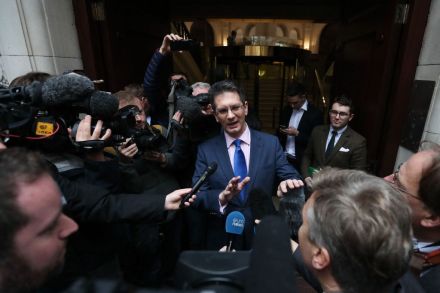Britain is broke – and we all need to face it
Sometimes when I go to bed, I think that if I were a young man I would emigrate,’ said James Callaghan, the then foreign secretary, in 1974. He was referring to that decade’s chronic economic dysfunction, with its double-digit inflation, growing unemployment and stuttering growth. Two years later, as prime minister, he would have to go cap in hand to request a bailout from the International Monetary Fund. Two years after that came the Winter of Discontent. Today’s economic picture may not be quite so bleak. Even so, the young see only intractable stagnation, cost-of-living pressures and visible decline. A recent poll suggested that more than a quarter of 18-













